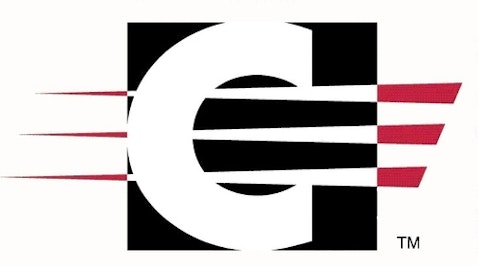In 2009, a total fish kill occurred in Dunkard Creek, which runs between West Virginia and Pennsylvania. The culprit was a type of algae that can only live in salt-water environments. Because the creek was freshwater, many wondered where the saltwater could have come from.

Source: Wikimedia Commons
It’s no secret that fracking water is many times saltier than normal ocean water, and authorities immediately started investigating whether local energy companies were to blame. Though the investigation was unable to definitively point any fingers, CONSOL Energy Inc. (NYSE:CNX) agreed to pay $5.5 million in penalties and to construct a saltwater treatment plant .

Though these could easily represent isolated cases, they underscore the importance of safety regulations when it comes to the natural gas boom in West Virginia.
State regulators hurry to update regulations
In the wake of such incidents—and growing concern among residents—West Virginia updated its fracking laws in 2012. The new laws require more transparency with regards to when and where a well will be built, how water will be managed, and what chemicals will be used in the process.
Though such regulations are a step in the right direction, they fall short of the scope the federal government is aiming to take when it comes out with its own fracking rules in early 2014. Along with requiring disclosure of fracking fluids, the feds will set up safe well construction standards, as well as requirements for the disposal of fracking wastewater.
But that hasn’t stopped West Virginia politicians, led by Attorney General Patrick Morrisey, from opposing government intrusion into state matters. Morrisey—along with the Attorney Generals from Montana, Oklahoma, Alaska and Alabama—recently sent a letter to Interior Secretary Sally Jewell claiming that the Bureau of Land Management had no business mandating rules to the states .
State officials have all the motivation in the world to keep the fracking machine well oiled. A report by WorkForce West Virginia shows that investment in the state by outside energy companies has ballooned since 2008. And in 2012, the state had the 5th largest percentage increase in GDP and the 3rd largest jump in per capita income. West Virginia politicians don’t want federal agencies to mess with this equation.
How this could affect your investments
Despite this opposition, it looks unlikely that the feds will decide not to enforce their own rules on federal lands. This could cause increased costs for meeting standards, as well as longer waits for drilling permits to be issued.
Between 2010 and 2012, the overall output of natural gas from the state grew by an impressive 82%. The four top producers of natural gas in West Virginia broke down like this:
| Billions of Cubic Feet | Percent of All WV Natural Gas | |
|---|---|---|
| Anterro | 105.7 | 19.5% |
| Chesapeake Energy Corporation (NYSE:CHK) | 73.6 | 13.6% |
| EQT Corporation (NYSE:EQT) | 42.2 | 7.8% |
| Exxon Mobil Corporation (NYSE:XOM) | 13.0 | 2.4% |
Source: West Virginia Geological & Economic Survey, via www.frackcheckwv.net. *Through Exxon subsidiary XTO Energy
If federal rules—or even tighter state rules—were to make drilling more costly or time intensive, it would obviously have an effect the operations of these companies. It is unlikely, however, given the geographical diversity and scope of these companies, that any tightening of regulations would be a deathblow to operations. Instead, it is the smaller, independent operators who lack deep pockets who could be most negatively affected.
The article West Virginia, Hoping for a Positive Fracking Outcome originally appeared on Fool.com and is written by Brian Stoffel.
Fool contributor Brian Stoffel has no position in any stocks mentioned. The Motley Fool has the following options: long January 2014 $30 calls on Chesapeake Energy.
Copyright © 1995 – 2013 The Motley Fool, LLC. All rights reserved. The Motley Fool has a disclosure policy.




